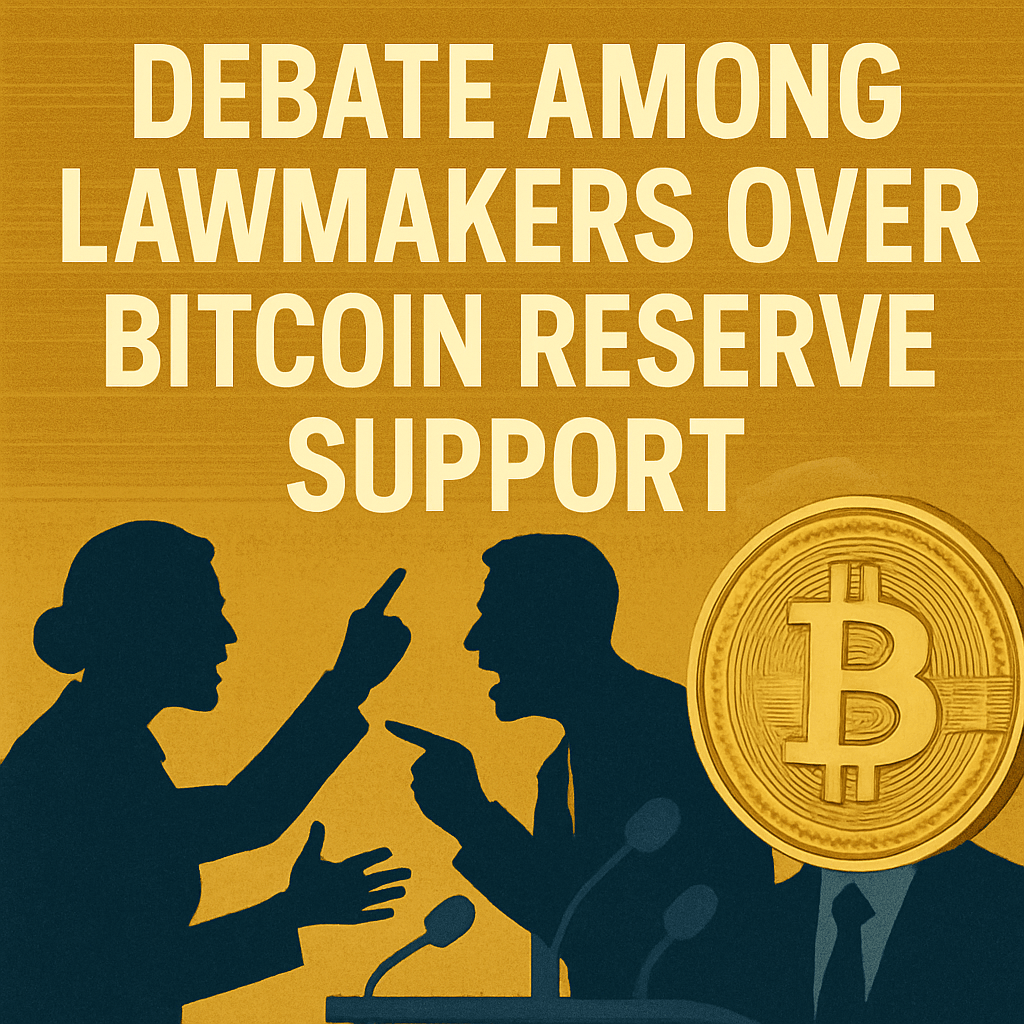Debate Among Lawmakers Over Bitcoin Reserve Support

Senator Cynthia Lummis, the chair of the Senate Subcommittee on Digital Assets, is advocating for the establishment of a Strategic Bitcoin Reserve, garnering support from military leaders. This proposal comes amidst a backdrop of skepticism from figures such as Jamie Dimon, CEO of JPMorgan Chase, who has downplayed the significance of the initiative, labeling it a waste of resources. Lummis, however, remains steadfast, asserting the potential strategic advantages of such a reserve in the evolving geopolitical landscape.
Military Endorsement and Strategic Rationale
According to Lummis, senior military officials believe that having a Bitcoin reserve could be a crucial element in the economic competition with nations like China. This belief is based on the premise that Bitcoin, given its decentralized nature and limited supply, could serve as a hedge against economic coercion from adversarial states that may attempt to exert pressure through traditional financial means such as sanctions.
The senator highlighted that just as weapons and ammunition are vital to national security, a Bitcoin reserve could also provide significant strategic flexibility. With future conflicts increasingly playing out in the realm of finance and technology, digital assets like Bitcoin are seen as tools that can enhance a nation’s resilience against economic pressures and ensure continuity during crises.
Legislative Context and Government Strategy
Lummis has introduced a bill proposing that the United States acquire 1 million BTC, an initiative designed to mimic how many sovereign nations accumulate gold as a financial asset. The proposal suggests using funds from the Treasury or Federal Reserve, rather than creating new budget allocations, to acquire these digital assets. Despite the ambitious nature of this proposal, progress in Congress has been slow, with the bill still residing in committee.
Moreover, former President Donald Trump, in a surprising move issued on March 6, 2025, ordered the establishment of a Bitcoin reserve alongside a stockpile for other digital assets. The plan would leverage assets seized during civil and criminal investigations, which could include around 200,000 BTC already held by the federal government. This approach introduces a unique mechanism for funding the reserve without additional taxpayer burden.
Price Predictions for Bitcoin Over the Next Decade
Drawing from a proprietary forecasting model, Lummis has predicted that Bitcoin prices could experience substantial growth over the next ten years. Key drivers for this potential surge include the cryptocurrency’s fixed supply capped at 21 million coins, increasing institutional adoption, and strengthening network effects as more users interact within the Bitcoin ecosystem.
However, analysts remain cautious about Lummis’s bullish outlook. They underscore that long-term price predictions are highly sensitive to shifts in regulatory landscapes, technological advancements, and the general sentiment prevailing in the cryptocurrency market. Any adverse changes in these areas could significantly impact Bitcoin’s trajectory, leading to volatility or stagnation.
Counterarguments and Dissenting Views
While Lummis champions the idea of a Bitcoin reserve, prominent critics like Jamie Dimon express serious reservations. Dimon argues that investing in a volatile asset such as Bitcoin, which can experience price swings of up to 20% in a single day, does not constitute a wise use of governmental resources.
Furthermore, a number of economists from leading universities oppose the notion of leveraging government funds to finance a Bitcoin reserve. They state that borrowing money to purchase cryptocurrencies is untenable, particularly in light of the US’s nearly $36 trillion national debt. As the debate continues, the future of the Bitcoin reserve bill remains uncertain, with many stakeholders closely watching these discussions.
Conclusion: The Future of Bitcoin as a Strategic Asset
As the dialogue surrounding the establishment of a Strategic Bitcoin Reserve evolves, it encapsulates broader conversations about the role of cryptocurrencies in national security and economic strategy. While advocates believe that digital assets like Bitcoin could enhance financial resilience, notable opposition persists over the inherent risks associated with such speculative investments.
In this cross-section of finance and geopolitical strategy, the outcome of these legislative efforts could reshape the future of US economic policy regarding digital currencies, potentially setting a precedent for other nations. Only time will reveal whether Bitcoin will be embraced as a cornerstone of national financial security.
Related Reading: XRP Could Transform Your Finances Long Before $10K, Angel Investor Says
Related Reading: $500M Bet On Solana: Education Platform Aims To Supercharge Its Treasury